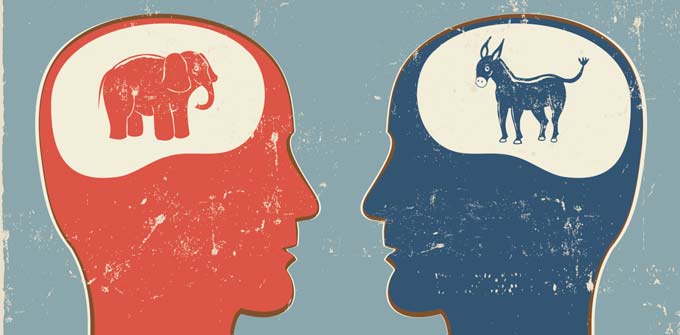(ThyBlackMan.com) You’ve heard that stress has an adverse effect on your health. Stress causes you to stay up in bed, and this leads to insomnia. Stress causes you to eat more comfort food, and this make you gain weight. And stress causes you to get irritated over the smallest things, and this aggravates your relationships. Stress impacts your central nervous system, your digestive system, and your immune system. It’s been linked to most serious illnesses.
But did you know that there is a growing body of evidence to show that chronic stress results in premature aging? As we experience work or life stress, our bodies get locked into a permanent fight-or-flight reaction to the world around us. This creates more cortisol, a stress chemical. Over time, this creates biological shifts. In effect, the body is gradually breaking down.
What Is Stress, Anyway?
There are essentially two kinds of stress—eustress and distress. Eustress is positive stress, doing something that is stimulating. Distress is negative stress, experiencing something as threatening or uncomfortable. Stress itself is a necessary part of life because it  excites our central nervous system to do something. Stress becomes problematic when it is experienced as distress over a long period of time, a condition called chronic stress, which accelerates aging.
excites our central nervous system to do something. Stress becomes problematic when it is experienced as distress over a long period of time, a condition called chronic stress, which accelerates aging.
The Science of Premature Aging
Here are three scientific studies to suggest that chronic stress is much more dangerous than we had assumed when it comes to aging and longevity.
- Stress Shortens Telomeres
According to a 2012 study sponsored by the Academy of Finland, work-stress does more than frustrate and exhaust us. It also impacts the DNA in cells. A DNA section called telomeres is an effective biomarker for aging. The longer the telomeres, the slower the aging process, and the shorter the telomeres, the faster the aging process. Short telomeres indicate damaged or dying cells. Researchers found that those with high work-stress had shorter telomeres while those with low work-stress had longer telomeres.
- Anxiety Accelerates Aging
According to a UC San Francisco research there is a strong correlation between making a stressful person anxious and accelerated aging. 50 women who had stressful jobs were told that they had to solve mathematical problems and do some public speaking. Those who were anxious about these two tasks showed higher levels of cellular aging. When someone who is already stressed faces a perceived threat, they react to the “danger” at a cellular level.
- Stress and Development of Dementia
A Huffington post article entitled, New Findings Show How Chronic Stress Contributes To Development Of Alzheimer’s Disease, discussed the research of Sara K. Bengtsson, a Swedish scientist at Umea University on the most common form of dementia, Alzheimer’s disease: “Bengtsson found that chronically elevated levels of one particular type of steroid, allopregnanolon, accelerated disease development of two Alzheimer diseases models in mice. The mice with elevated levels of the stress steroid responded with impaired memory and learning early in the stage of disease development, when they normally would not display these symptoms. After a period of experiencing chronically high levels of allopregnanolon, the mice’s brains also had higher levels of beta-amyloids, i.e. the proteins that form plaques between nerve cells in the brains of those with Alzheimer’s disease. Her work also showed that high levels of beta-amyloids were linked to brain synapse dysfunction.”
How to Combat Stress
There are a number of ways to combat stress, and one that creates the fastest sense of relief is massage therapy. Since massage therapy is expensive, at an average rate of $60 an hour, someone with chronic stress may not be able to get all the massage sessions they need to restore their physical health and emotional well-being. One solution is to study massage and then take turns exchanging massages with a life partner or other family member. Take a few classes, then save money by looking for portable massage tables for sale and buying massage oils in bulk at wholesale prices.
How Massage Helps Relieve Stress
Massage is more than a feel-good experience available at spas and resorts. It is an effective form of alternative medicine. It has been shown to provide significant physiological and psychological relief. While there are many schools of massage, the most popular are Swedish massage, Deep massage, Sports massage, and Trigger point massage. While all work well, Trigger point massage can be particularly effective for someone with chronic stress. According to the American Massage Therapy Association (AMTA), “In a study on the effect of trigger point therapy1, there was a significant decrease in heart rate, systolic blood pressure 8, and diastolic blood pressure 8. Measures of oxygen consumption, blood pressure, and salivary cortisol levels were all lower after a 10 to 15 minute chair massage in controlled studies2, 3, 4. Changes in psychological states have been measured by physiological responses1, 3, the Perceived Stress Scale5, the POMS Depression Scale4,6, and the Anxiety State Scale4.”
Slow Down Aging
Telomeres are a biomarker for aging. Shorter telomeres signal a shorter cell life. While we have not yet discovered how to keep our telomeres from shortening, we have discovered that people with chronic stress are more likely to have shortened telomeres. This scientific discovery puts the power back in our hands. By making lifestyle choices, we can learn how to scale back or disengage from the stressful experiences in our lives.
Staff Writer; Jerry Williams
















Leave a Reply